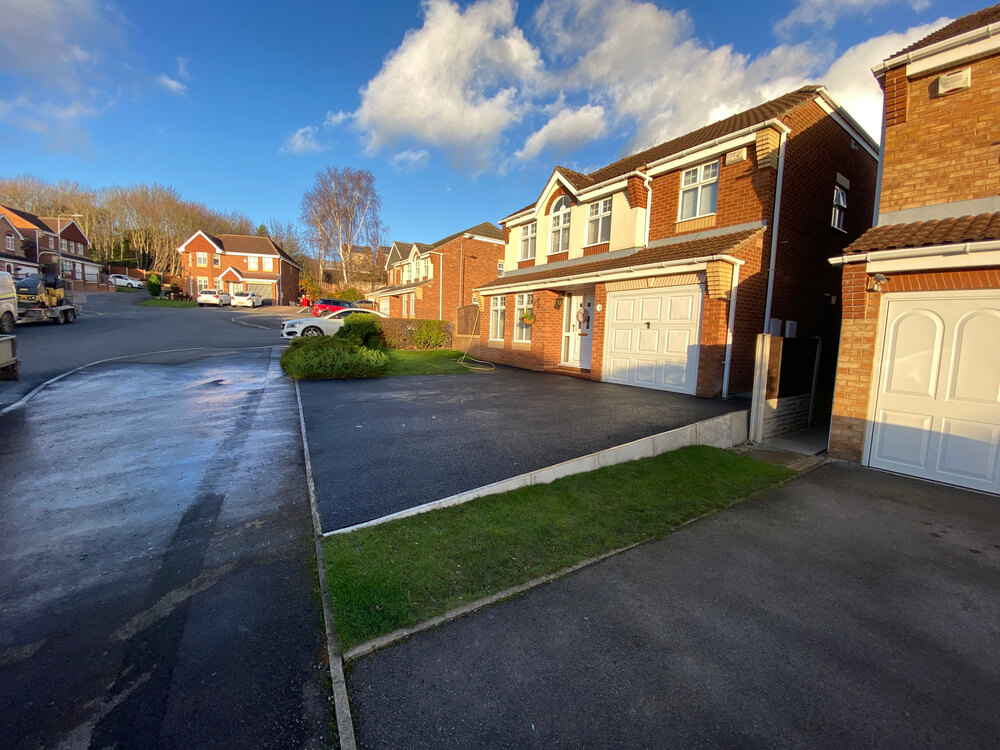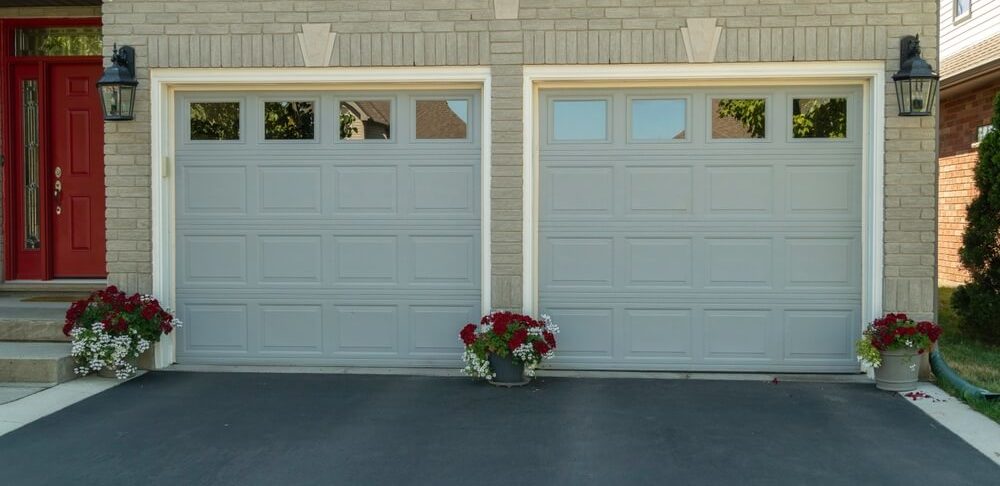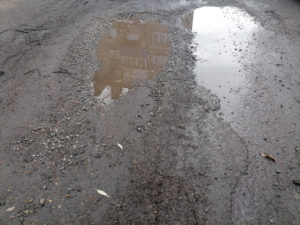Installing a new asphalt driveway or resurfacing an existing one is a major project and significant investment. Both bring a lot of benefits to a property, but many people wonder: how long does an asphalt driveway last, and is the driveway’s lifespan worth the investment?
How long should a driveway last? On average, a well-maintained driveway will last between 15 and 50 years. Several factors contribute to how long an asphalt driveway lasts.
How Long Should a Driveway Last?
One of the most important questions when considering whether or not to invest in replacing your drive is how cost effective it is. It’s important to ask your contractor “how long should a driveway last?” Compare the cost of installation by dividing it over the expected lifespan.
For example, a gravel driveway sounds like a deal when you hear the initial cost and the expectation that it can last forever. However, if you dig a little deeper, you learn that it costs to replenish that gravel regularly and it doesn’t handle severe weather well.
Conversely, an asphalt driveway may cost a little more upfront, but it can last up to 50 years and requires less maintenance than gravel. An asphalt driveway also handles the elements better and is more functional.
How long should a driveway last? It depends on the materials you choose, how it’s installed, and how well you maintain it. Thankfully, there are many things you can do to make your driveway last longer.
How to Maximize a Driveway’s Lifespan
How long does an asphalt driveway last if you leave it alone? Not nearly as long as it could. If you’re concerned about how long a driveway should last, you probably want some tips to keep yours looking sharp longer.
Prevent Water Damage
Water is the enemy of an asphalt driveway. Even a minor amount of water can:
- Erode weak spots
- Eats into cracks and wears off asphalt edging leading to more cracking
- Sitting ice freezes and expands cracks
- Runs through an expanding and contracting in winter, leading to more cracking
More than any other challenge your new asphalt driveway will face, water is the most destructive and potentially life span shortening. To combat water’s potential and actual damage, you need to be diligent and aware of its lurking potential.
Inspect the edges of your asphalt driveway routinely and fill in gaps or areas where rain has started to wash away the dirt and asphalt. Remove any obstacles to draining the driveway of water and when water pools significantly, sweep it off with a push broom or vacuum it with a wet-dry vac.
In the winter, do not let snow build up on it to the greatest extent possible as that contributes to water freezing in, expanding, and widening cracks. If a chunk of asphalt gets removed during a deluge of rain, fill it as soon as possible.
The more you stay on top of controlling and mitigating water damage, the greater your chances for success against water shortening the lifespan of your driveway.
Apply Sealant as Needed and Regularly
Your driveway will develop cracks almost immediately as the asphalt driveway cures and dries. Most of them are barely noticeable. When you notice them, however, you need to seal them with a seal coat. Sealcoat helps prevent oxidation of the surface asphalt, leading to more cracking, chipping and even the asphalt breaking off in chunks.
You need to make sure you do not over-seal, though. Over-sealing can negatively impact the integrity of the asphalt driveway and further break, cracking, and degradation. If done repeatedly, it can greatly reduce the lifespan of the driveway.
Manufacturers and pavers recommend that you seal coat your driveway every few years, and only when the seal coat wears off by traffic and the elements. The easiest way to tell when this has happened is to look for “naked” patches of seal coat, which look rougher than an asphalt driveway with a seal coat layer on top of it.
Fill Cracks Quickly
You probably have figured out that cracks are a major lifespan reducer of asphalt driveways. When they appear, it is only a short time before they start expanding in just about every circumstance. Left alone, a visible crack can widen and expand into a major crack and eventually lead to more cracks and asphalt breaking off and becoming loose.
The only way to combat this is to stay on top of cracks and use approved materials to fill them in as soon as possible. Sealcoat can handle smaller to medium cracks, but larger cracks must be treated with filler, and then a layer of seal coat applied if the pavement around the crack is bare.
If your driveway is under any warranty, check to ensure that DIY does not negate the warranty for the product itself or the materials.
Choose a Paving Company Wisely
The best way to ensure you get the most out of your new asphalt driveway is to only work with qualified experts. Asphalt is not a complicated substance to work with, but if you do not know what you are doing, you can greatly reduce its lifespan significantly and even wreck the job.
While it’s possible to attempt it as a DIY project, there are several steps involved that require a certain amount of skill. Professionals know how to prepare the area and create the best foundation for a driveway to ensure it lasts longer and doesn’t crack or buckle under the stress of regular use or severe weather conditions.
Several things can increase a driveway’s life expectancy, but few things will reduce the lifespan as quickly or dramatically as improper installation. Unless you know exactly what you are doing or are working with someone who does, you should get a professional to install it to get the maximum lifespan out of your drive.
Tips for Choosing the Right Paving Company
When choosing a company to design and lay your driveway, make sure that they adhere to the following criteria:
- Possess years of installation and repair experience
- Utilize the latest in paving technology and tools
- Only use high-quality asphalt
- Have great customer reviews and can give you references
If you insist on those four characteristics, you will get a company that can give you a new driveway that will last a long time.
Final Thoughts

How long does an asphalt driveway last? Ideally, up to 50 years, but as this advice shows, much depends on you maintaining it properly and only using professionals with superb reputations for driveway design and paving.
If you do, however, getting 30 years out of your asphalt driveway is almost a given and attaining that top-end estimate is a real possibility. Contact Richfield Blacktop today to speak with one of our experts about your asphalt driveway.






